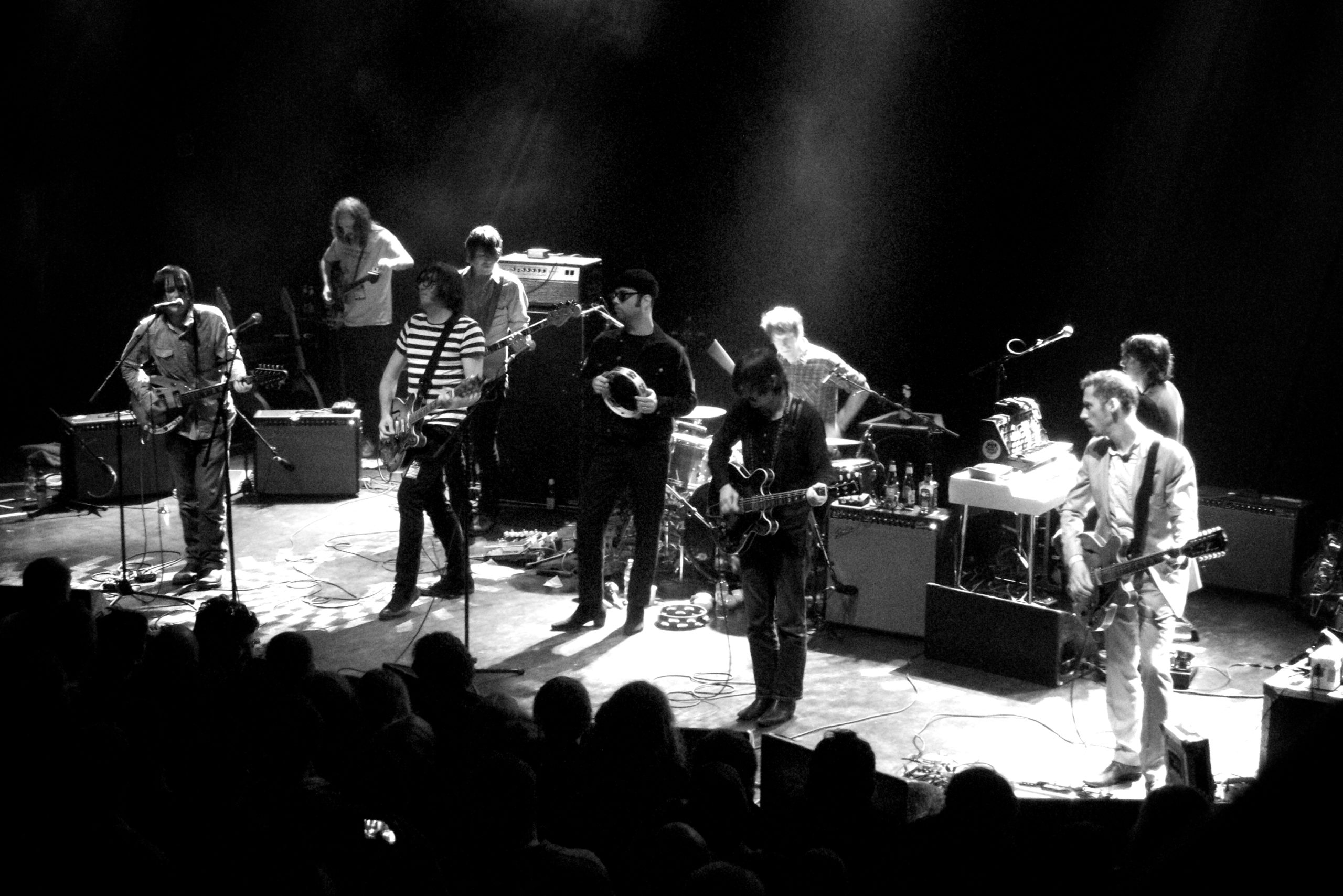By Devin Gonzalez
We recently had the opportunity to talk with the Brian Jonestown Massacre’s frontman Anton Newcombe about their tour and their latest album, “The Future Is Your Past,” which was released in February.
How has the tour been going, and how does touring feel now compared to when you were starting out?
“I think that people are a lot less skeptical with what it is that I'm trying to do. I think when we first started, like when I first went to Iceland, everybody's like, ‘you're just here to fuck our women or some shit bullshit, right?’ And then people were saying like when we play, what is this The Monkees? There was no point of reference. But I think now we found ourselves in a really interesting space with a diversified audience of people that like the music and also of all ages, even when it's people bringing in their friends for the first time or something. It's like a really good space because most concerts even no matter who it is, a lot of the audience, they're crossed arms and they're just skeptical of everything they're witnessing live because I think it's the product of hypernormalisation where people don't know what to think about anything. Whether it's the dumbest person in the world running for president or whatever. They don't know what to think or they’re just tired of thinking. So I think we really lucked out. It's been really positive and heartwarming. For the most part, I can just do what I want without battling idiots.”
Have you noticed if your audience has changed (with new, younger fans in the crowd) or do you feel like there still remains a strong demographic of longtime psych fans that go to shows?
“We’ve always had a really mixed crowd. Always, from the beginning: from original hippies to the youngest people we could get in the door, and that's never changed.”
“It’s really cool to see in a city when there's all kinds of people, old people, children, instead of just like, oh, wow, we've got this ‘.com’ thing and everybody's just some jerk. Yeah, that's a bunch of money for two weeks and the rents are all too high and it's all Airbnbs and another group of assholes who come in and leave every day. It means that your city's alive. You know, wherever you see all types of people, like for instance, in the Hispanic community or whatever you see that's happening, that means the city is actually alive and living. It isn't like some dead zone that places get, that's a beautiful thing and I'm very thankful.”
Do you find yourself getting inspired by traveling around the world getting new experiences, or do you mainly get inspired when you have to sit down in the studio seeing what flows out of your mind?
“When I was a little kid, I knew very quickly I didn't want to be like anybody I've ever met, or like any of my friends. So I already had the inspiration in me to be myself. So I don't need inspiration. What I need to do is never forget what my core values as a person are and my techniques. See, it’s like I told my 10-year-old that you don’t need to learn and memorize everything. What you need to do is figure out how to answer the question that you're asking, or to know where to look for the answer. It's like most of the people walking around in the Western world and many other places have a computer in their pocket called a smartphone that's more powerful than the computers that were used to put people on the Moon. But they don't ever do anything with it. But the thing is, it's a very powerful tool if you're very inquisitive. Even Google, as horrible as it is, can be really really a powerful tool if you love learning. And I certainly do.”
How do you see your sound evolving over time? Or do you envision yourself trying to explore more of your ideas such as in your new album (“The Future Is Your Past”)?
My sound evolves because part of it is experimental and the other part is totally traditional. What I understand from where I come from, you know, I was born in 1967. So between my parents' record collection, everything that happened, I watched all that stuff and I closed my ears at the right time and opened them up back again. My only goals are to carry on. Not picking on old people or anything, but you know, there's people like the Rolling Stones who they're now in their 80s doing this thing that doesn't resemble anything. But it's a big show, you know, it's entertainment. And they certainly are professionals and people are there for it. I don't want to be that person. What I want to do is prove to other people that it's a ridiculous notion to think that manufactured teenagers are where it’s at. It doesn't matter if they're hip hoppers or whatever. That is not actually the pulse of anything. That's the pulse of big business. Like for instance, in the 60s. The people that were producing and making up the wild sounds and making everybody sound so good, they never, ever asked 13 year olds what they wanted. However, if there were some hot shit teenagers ripping it up, it doesn't if it was in surf music or anything else, they would make 10 of those. Doesn’t matter if it’s psychedelic or anything else, they go ‘we better get on this train very quick’. So it was a 50/50 balance and it's very important in politics and everything else, not a deadlock, but that people consider those things.
You often post your music on your YouTube channel before you actually release it on streaming platforms, or on shelves. What's your motive behind this?
So say like, your band's gonna be this big thing and you're hiding your big premiere of your song for Pitchfork or whoever, right. And they put it out on their social media. Within five minutes you're off the fucking screen, all your money and all the king's horses. I watched everybody's records sink below the sand. What I do is I interact with the works in progress and if I don't release it, so what. If I mix it and it’s better and I finish singing the words correctly, fine. But people can interact with it. It's more in our world. It's an observation that I made because I've been using computers as long as people have been using the internet. I understand how it works and how it actually works. Not to manipulate it to like help get an edge up on somebody else or rescue somebody else. But I understand how it works and how discovery works. Rather than selling something, I'm more interested in building culture.
When it comes to finding band members or potential people to collaborate with, do you try to find people that have a similar energy or people that could go along with your thought process?
I will teach anybody I care about everything I know about music, or life, art, perceptions, ways of seeing. And that doesn't mean that I'm being like a cold guy. It's kind of the only way there's ever been. But it doesn't matter if you're making oak beds or brass beds, or teaching somebody to intern. You're gonna teach them everything you know about your craft, and it doesn't always work out. It doesn't matter if you're a plumber and you take a teenager in for a summer job or not. It's not going to be everybody's gig. That's exactly the way I do it. Exactly like somebody who's a plumber that you would call and find some kid who wants to work or some person wants to try it and I try to teach them what I know that works. Every aspect right down to work is play. Then it does not feel like it’s work. So you're not just harboring resentment over every little thing you do grumbling and then bitching about why your life doesn't work. But treat everything that same way.
This interview has been edited for length and clarity. The views, commentary, and opinions expressed during the preceding editorial are solely those of the person(s) expressing them and not necessarily those of the faculty, staff, or administration of Rice University.
The Brian Jonestown Massacre’s album “The Future Is Your Past” is available wherever you stream music.

Photo taken by Aurelien Guichard from London, United Kingdom - Brian Jonestown Massacre, CC BY-SA 2.0, https://commons.wikimedia.org/w/index.php?curid=22318710

